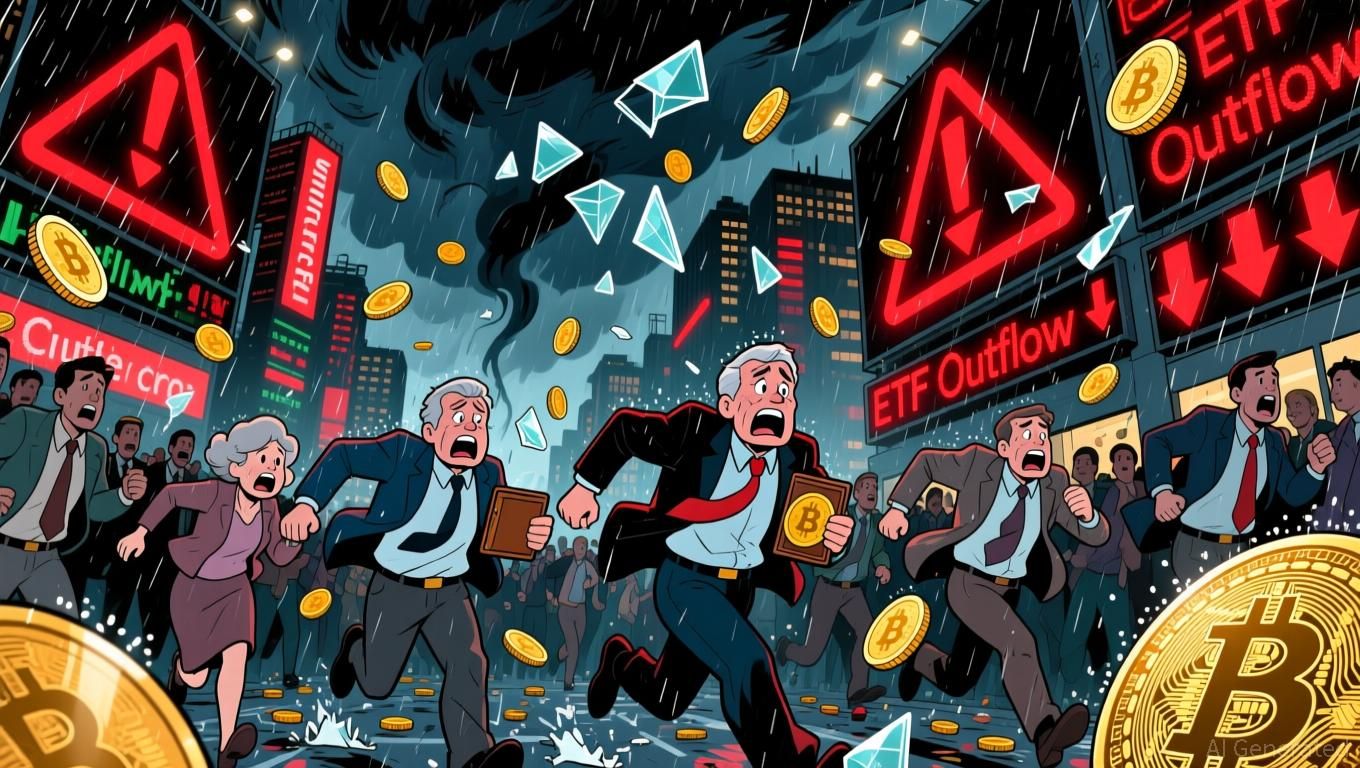The COAI Token Controversy: Exposing Weaknesses in DeFi and Charting a Course for Safeguarding Investors
- COAI token's 2025 collapse wiped $116.8M, exposing DeFi's fragility due to governance flaws, regulatory gaps, and technical vulnerabilities. - Smart contract failures and concentrated ownership in ten wallets amplified manipulation risks, eroding trust in C3.ai's leadership. - Regulatory ambiguity, like the U.S. CLARITY Act's vague definitions, hindered institutional investment and enabled scams in Southeast Asia. - Experts urge real-time audits, diversification into AI hardware, and global frameworks li
Technical and Governance Failures
The downfall of the COAI token stemmed from significant issues in its smart contract design and instability among its leadership.
Security audits of smart contracts, which are vital for DeFi safety, were either inadequate or disregarded. Specialists now stress the importance of obligatory independent audits by organizations such as CertiK or OpenZeppelin to catch vulnerabilities before launch. The lack of these protections in the COAI incident enabled attackers to exploit technical gaps, a trend also seen in other DeFi breaches in 2025, including the
Regulatory Ambiguity and Global Enforcement Gaps
The COAI controversy also revealed shortcomings in current regulatory systems. The U.S. CLARITY Act,
Southeast Asia has emerged as a major center for crypto-related fraud,
Investor Protection: A Call for Proactive Measures
Following the COAI collapse, there is a growing demand from investors for more robust protections. Bitget’s experts suggest a comprehensive strategy:
1. Real-Time Auditing:
2. Diversification Strategies: Shifting investments into less correlated fields, like AI hardware or quantum computing, to reduce exposure to sector-specific downturns.
3. Hedging Instruments: Employing inverse crypto ETFs or options as a buffer against market swings.
4. Regulatory Advocacy:
Nevertheless, regulatory advancements are inconsistent. For example, the IRS’s updated DeFi reporting requirements are being contested over privacy issues, while the SEC’s move to classify stablecoins as securities has imposed significant compliance challenges on smaller platforms.
Conclusion
The COAI token incident encapsulates the wider issues facing DeFi: intricate technology, unstable governance, and fragmented regulation. For the sector to progress, it is essential for all parties to emphasize openness, enforce strict due diligence, and push for unified global regulations. As Bitget’s research
Disclaimer: The content of this article solely reflects the author's opinion and does not represent the platform in any capacity. This article is not intended to serve as a reference for making investment decisions.
You may also like
Bitcoin Updates: As Investors Pull Out of Bitcoin ETFs, Altcoins See Increased Inflows During November Sell-Off
- U.S. bitcoin ETFs lost $1.22B in net outflows for the week ending Nov 21, extending a four-week negative streak with total November redemptions reaching $3.79B. - Bitcoin fell below $82,000 amid a 7-month low, triggering a $350B crypto market cap drop as Citi noted 3.4% price declines per $1B ETF outflow. - Solana and XRP ETFs bucked the trend with $300M and $410M inflows, attracting institutional interest despite broader market weakness. - Analysts warn of potential 50% further Bitcoin declines, while F
Bitcoin Updates: Bitcoin's Sharp Drop and ETF Outflows Trigger a Cycle of Self-Perpetuating Sell-Off in Crypto
- Bitcoin fell to a seven-month low amid $3.79B ETF outflows in November, with BlackRock's IBIT and Fidelity's FBTC accounting for 91% of redemptions. - Analysts cite profit-taking, leveraged position unwinding, and Fed rate uncertainty as key drivers, while NYDIG highlights structural shifts like collapsing stablecoin supply and DAT premiums. - Citi Research links $1B in ETF outflows to a 3.4% Bitcoin price drop, pushing Bitcoin dominance to 58% as investors shift to riskier altcoins. - Despite bearish sh

Markets Predict Fed Pivot, Central Bank Remains Silent

BIS sounds the alarm: Stablecoins could trigger a bond crash
